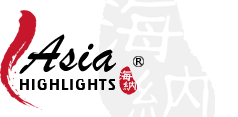Hanoi (the capital city of Vietnam) has a humid subtropical climate with four distinct seasons:
- Spring (March–April): Mild temperatures, occasional drizzles
- Summer (May–August): Hot, humid, and rainy
- Autumn (September–November): Cool, dry, and pleasant
- Winter (December–February): Cool to cold, often overcast
The best time to visit is between October and April, when the weather is drier and more comfortable compared to the rainy season (May to September). For the best balance of warmth, sunshine, and minimal rain, March–April and September–November stand out as the top choices.
Now, let's dive deeper into the best times for different experiences in Hanoi and a detailed breakdown of Hanoi's seasons.
The Best Times to Visit Hanoi
Beyond the best weather in March-April & September-November, the ideal time for different activities may vary:
- Halong Bay Cruise & Water Activities: Late September–December has the most sunny days for great visibility, stunning sunrise/sunset views, and ideal conditions for kayaking and swimming.
- Sapa & Mountain Trekking: March to April showcases spring blossoms; September stands out for golden rice terraces; and October to November features dry trails and a sea of clouds around Mt. Fansipan.
- Top Festival Season: Mid-December to early February (Christmas, New Year, Tet).
- Budget Travel: May features off-season rates, fewer crowds, and milder weather, avoiding the peak summer rush and extreme conditions.
The Worst Times to Visit Hanoi
From June to August, Hanoi sees its worst travel weather: hottest and wettest. Daily highs typically range from 32-35°C (89-95°F), but they often feel like over 38°C (100°F) due to humidity over 80%. With over 15 rainy days per month, sudden downpours can flood the streets, though the water recedes quickly.
By August and September, Halong Bay's worst season arrives, as the peak typhoon season brings storms, thick mist, and poor visibility, sometimes forcing last-minute cruise cancellations.
For Sapa, December to February is the least favorable time to visit, with freezing temperatures, occasional snow, and heavy fog. The rice terraces also lie barren during this period.
Hanoi is at its most expensive during Lunar New Year (Tet) and Christmas, when prices surge and availability is limited. To secure better rates and avoid last-minute stress, book your stay and tours at least three months in advance.
 Sapa in December
Sapa in DecemberHanoi Weather: Four Distinct Seasons
Spring (March-April): Mild & Light Drizzles
Spring is a decent second choice for the best time to visit Hanoi, with mild temperatures ranging from 18–26°C (64–79°F). While light drizzles are common, they create a pleasant atmosphere with blooming flowers.
In Halong Bay, the calm waters and misty mornings create a surreal, almost ethereal landscape, though overcast skies can sometimes reduce long-range views.
Sapa's terraced fields start turning green, and its valleys come alive with peach and plum blossoms, making for a picturesque trek.
April is a great time to see the spectacle of thousands of butterflies at Cúc Phương National Park.
What to pack: light, breathable clothes, a light jacket, an umbrella, and comfortable shoes for walking and trekking.
 Sapa in Spring
Sapa in SpringSummer (May-Early September): Hot, Humid & Rainy
As the rainy season, summer is the most challenging time to visit Hanoi due to the intense heat, high humidity, and frequent heavy rain. When traveling during this period, a flexible schedule and a solid backup plan will save you from frustration.
May marks the start of the rainy season and offers the most sunny breaks in this season. As the best travel window, you could enjoy the low season benefits: lowest price & fewest crowds.
June, July, and August are the hottest months, with daytime temperatures often reaching 35°C (95°F). With humidity, it feels well over 38°C (100°F). For outdoors, stick to early mornings or evenings—midday heat is brutal.
August is the wettest month, bringing intense afternoon storms and occasional flash floods, especially around Hoan Kiem Lake.
Halong Bay cruises in August and September may get canceled due to typhoons. A safer bet? Ninh Binh—same stunning karst landscapes, but no risk of rough seas.
If traveling to Sapa, you would see the greenest rice terraces and lively farming scenes. But trekking trails would be slippery due to the rainfall.
What to Pack for Summer: Light, moisture-wicking clothes, a waterproof jacket, sunscreen, sturdy shoes for slippery trails, an umbrella
Autumn (Late September-November): The Best Time to Visit
 Cruising through Halong Bay
Cruising through Halong BayAutumn is the best time for all activities—cool, dry, and full of sunshine.
From late September to November, temperatures range between 20–28°C (68–82°F), with minimal rainfall and over 70% sunny days.
With such ideal weather, you can fully enjoy Hanoi's top experiences, whether it's exploring the city, cruising through Halong Bay, or trekking in the northern highlands.
If you're after the most stunning rice terrace views, late September to early October is the best time, as the fields turn golden just before the harvest. By mid-October, many terraces will already be cut, so timing is key.
What to Pack for Autumn: Light layers for cool mornings, T-shirts for warm afternoons, sunscreen, a hat for sun protection
Winter (December-February): Cool to Cold & Overcast
If you don't mind cool to cold weather, Hanoi's winter can be a good choice for its drier weather and festive celebrations.
Rainfall is low, averaging 30–50mm per month, usually as light drizzle or brief showers that won't affect outdoor plans.
Temperatures range from 10–20°C (50–68°F), with January being the coldest month. Cold snaps can drop it below 10°C. Mornings are foggy, especially around lakes and the Red River, but the mist clears by midday.
Halong Bay's waters are too cold for swimming, but the limestone karsts rising from the mist make for a spectacular sight.
In the mountains, like Sapa, temperatures can drop below 5°C (41°F), and some high-altitude trails may close due to ice.
Winter is also the most festive season. Christmas (Dec 24–25) sees St. Joseph's Cathedral lit up in dazzling displays, while Tet (late January to early February) transforms the city with lanterns, street decorations, and lively pre-holiday markets.
What to pack for winter: warm layers, a light jacket, and a down jacket if heading to the mountains.
 St. Joseph's Cathedral in Hanoi city before Christmas.
St. Joseph's Cathedral in Hanoi city before Christmas.FAQ about the Best Time to Visit Hanoi
1. What is the best month to visit Hanoi?
March to April and late September to November offer the best weather, making them the most recommended months.
2. Is it worth visiting Hanoi in the summer?
May is a good option with fewer crowds and lower prices. However, June to August is hot and humid with frequent rain, so it requires careful planning.
3. What is the hottest month?
June, July, and August are the hottest months, with temperatures often reaching 35°C (95°F) and feeling even hotter due to high humidity.
4. What is the wettest month?
August is the wettest month with heavy rain of 309 mm (12 in) and occasional floods.
5. What is the most expensive month?
Hanoi is most expensive during Tet (late January to early February) and Christmas.
6. When is the best time for couples?
Autumn (September-November) offers perfect weather and scenic views for a romantic getaway.
7. When is the best time for families with school kids?
With school kids, summer, Easter, and Christmas holidays are popular times for family travels. So, considering the weather, Easter is the best for mild weather, followed by Christmas and summer.
Visit Vietnam with Asia Highlights
Asia Highlights welcomes the chance to help you design your perfect trip to Vietnam. Our knowledgeable staff will assist you in selecting destinations, accommodations, and activities that best suit your requirements.
Check out the following links to learn more about our tours and get a head start on planning your hassle-free vacation today!
Get Inspired with Some Popular Itineraries
At Asia Highlights, we create your kind of journey — your dates, your destinations, at your pace. You can have any trip tailor made for your travel.



